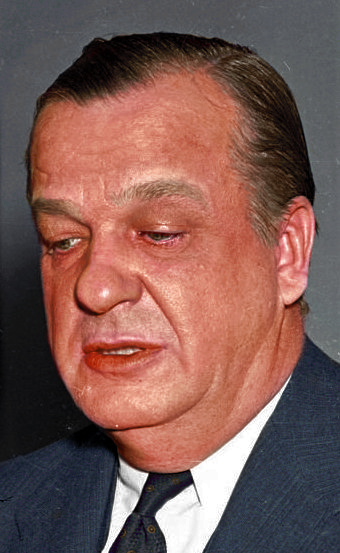The Evening Star (April 20, 1946)

Eliot: Our future insurance
By George Fielding Eliot
The Army needs a force of 1,550,000 officers and men on July 1, 1946, and a force of 1,070,000 officers and men on July 1, 1947.
All responsible individuals have agreed that these requirements are essential to fulfill our national commitments.
There is likewise general agreement that these numbers cannot be assured by voluntary enlistment alone. There is some difference of opinion over the extent of the deficit if voluntary enlistment is the only means left to the Army of getting its man-power requirements. But that there will be a deficit there is no doubt in the mind of anyone who has really studied the problem.
The extent of the deficit depends on the rate at which voluntary enlistments continue. If these go on about as they are now, there will be a deficit of 165,000 men on July 1, 1947 – about 15 percent below the required level. If, however, selective service is discontinued, and this fact has the effect on voluntary enlistments which informed observers anticipate, the manpower deficit on July 1, 1947, will be anywhere from 336,000 to 400,000 men – the latter being Gen. Hershey’s estimate, and Gen. Hershey is in a position to make a pretty good guess. That means a deficit of 37½ percent of the Army’s need: which are. it should hardly be necessary to add, the nation’s needs.
The Military Affairs Committee of the House of Representatives, faced with these facts, tried to dodge its responsibilities by reporting out a bill which is wholly useless to the Army and which in effect passes the buck to the president to decide for or against restoration of the draft after a five-month enforced “holiday.”
![]()
First, it would permanently stop induction of young men in the 18–19-year age brackets. Since these are almost the only men now available, resumption of the draft after five months would have little meaning. Only about 60,000 men could be obtained. The manpower pool of the nation is dry and the House bill cuts off the spring which feeds it.
Second, it would require the immediate discharge of all inductees after 18 months of service. The War Department hopes to reach this standard for discharge of inductees gradually – probably in the fall of this year. To require its immediate application would produce a definite shortage of 130,000 men on July 1, 1946.
Third, the general effect of the House bill is a declaration by Congress that there is no longer any necessity or obligation to serve in the Armed Forces: That we can settle back comfortably: Just relax. The effect of this, quite aside from any other consideration, on voluntary enlistments can only be imagined.
The House bill is clearly a gamble with our national needs and commitments. The impression it produces on the world will be that of an American people whose representatives are unwilling to face up to their responsibilities.
![]()
Consider, for example, the situation in Germany. There we have a considerable Army of occupation. That Army can only be maintained at its full strength – the strength adequate to the discharge of its responsibilities – if it forms part of a United States Army which has adequate sources of manpower for all needs. Otherwise there must be compromises and adjustments between the needs of the Army of occupation and other responsibilities which the Army as a whole must meet. If we reduce our occupation forces in Germany it is going to be very difficult for the British government to convince Parliament that the British Army of occupation should not be likewise reduced. The net result will be that the Russians, who labor under none of these difficulties in the making of decisions, will be more and more the preponderant force of military occupation in Germany and will have, as a result, a more and more preponderant voice in deciding the future of Germany.
What the nation needs, in this period of uncertainty and change, is insurance for the future. No one is proposing a permanent extension of selective service. The Army’s proposals have been perfectly objective and honest: The Army has asked for a year’s extension of the draft, to carry it beyond the date of convening of the next Congress and to assure the meeting of the 1,070,000 requirement on July 1, 1947; the Army has likewise promised that nobody will be drafted if sufficient volunteers are forthcoming, that the term of service of inductees will be lowered to 18 months as soon as possible, that all fathers will be discharged at once, and that every effort will be made to use 18-year-old inductees on other than occupation duty. These are fair and reasonable proposals. The Senate, in its traditional role of national balance wheel, should support them and correct the timid flight from reality which the House bill represents.